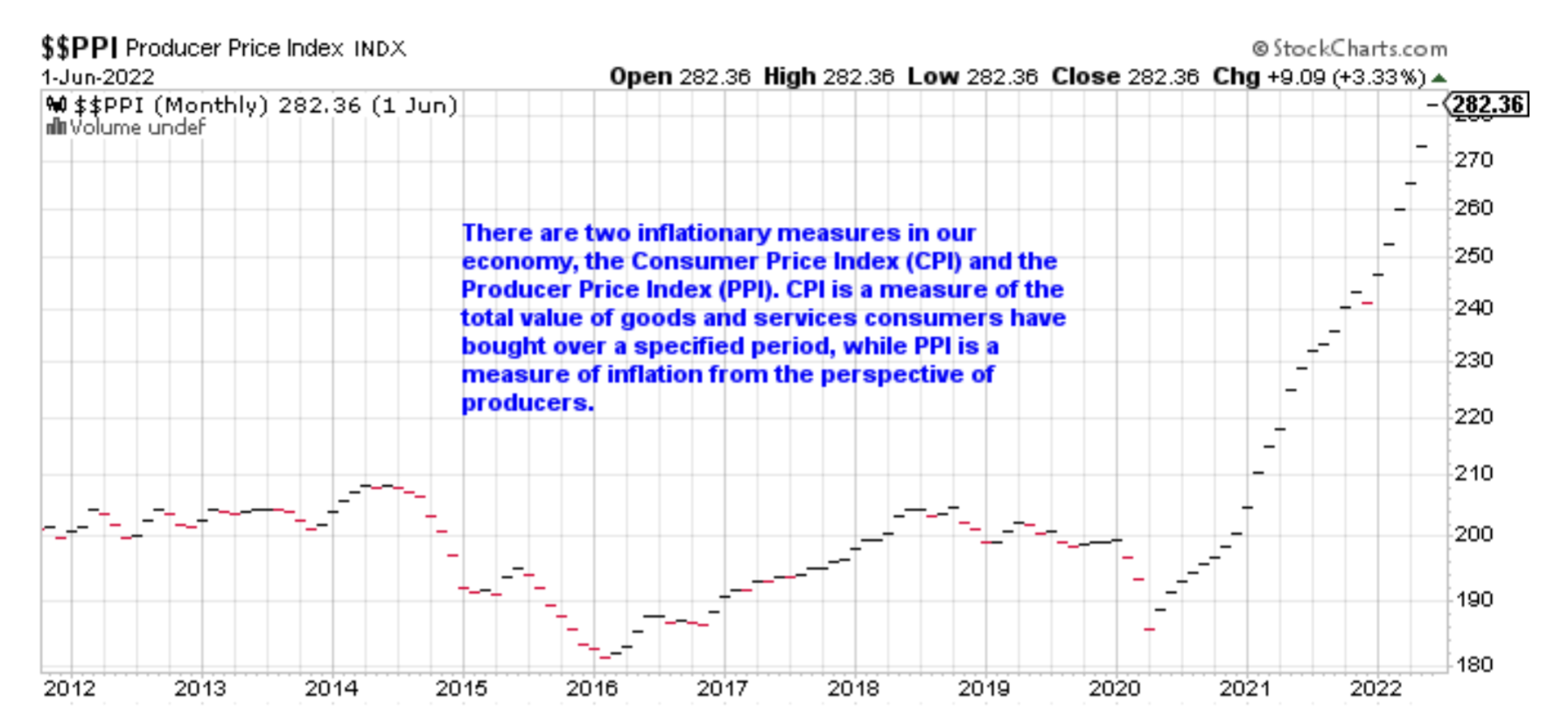
I thought this spike in the Producer Price Index illustrates inflation well coming out of the Covid-19 pandemic. As you likely saw, the Bank of Canada raised interest rates a full point this week, following aggressive rate hikes from the Federal Reserve in the U.S. The aim of central bankers is to cool down inflation but in a perfect world, they want to do this without causing the economy to recede.
Recessions are not terminal events but rather part of a normal economic cycle. That said, I have trouble believing that as a realistic possibility at this juncture. What recession in history has occurred without job losses? That doesn’t seem to match up with our current economy that if suffering, is from a massive labour shortage. (Not a bad time to be graduating from university or college.)
Further, the consumer is responsible for about 60 percent of U.S. GDP and as I mentioned last month, the consumer is much more flush today than they were at the beginning of the pandemic. While tangible evidence of inflation can be seen at say, the gas pump, I don’t know anyone who has given a thought to quitting driving.
Whether our hot economy is receding as a result of rising interest rates however, might be more visible as we are about to report quarterly earnings.
If a Bear Market is a 20% decline in an index, the U.S. is certainly there. Canada however is not and remains one of the top three performing markets in the world this year thanks to energy and commodities. If this year’s Stampede is any measure of glee, Alberta seems happy again.
While this pullback seems significant, it is not in historical terms. Even that drop in the market in the spring of 2020 was <39%>. It might be more painful though as it drags along through it’s seventh month.
If you are interested, bear markets historically average around 9 months but longer when associated with recession.
In my March update, I suggested inflation might spike this summer and then fade. I am looking for evidence and more recently, I have noticed ‘new price’ stickers on real estate signs. Mortgages two years ago could be had for 1.5% for a five–year term. Today, five–year rates are around 5%. As inflation eventually recedes, I believe, so will interest rates. The supply chain, I believe will right itself.
Despite this, Bank Dividends still pay more than five–year bonds and when you factor in the dividend tax rate, National Bank stock with it’s 4.39% dividend equates to a pre-tax interest equivalent yield of 6.14%, Remember how the banks raised their dividends again last quarter? The track record for growth historically in most of the Canadian bank stocks is impressive.
I’m starting to think about how this pullback eventually ends.
Will it end like every single other pullback in history with higher market valuations? I think so. Just like we tell you to trim stocks when they go up, we are going to tell you to buy some more when they are down.
If you own Alphabet stock (Google), it splits 20:1 after the market close today (July 15th)
Our Victoria office is open again, though we are operating a hybrid model with different members of my team there on certain days of the week. Please call before coming down so someone is there to meet you. Otherwise, our reception on the seventh floor is open Monday – Friday. Rule of thumb: Call us first.
Summer seems to have arrived mid-July Best wishes to you and your family during this great time of year. I hope you have lots of opportunity to get outside.
I have prepared this commentary to give you my thoughts on various investment alternatives and considerations which may be relevant to your portfolio. This commentary reflects my opinions alone and may not reflect the views of National Bank Financial Group. In expressing these opinions, I bring my best judgment and professional experience from the perspective of someone who surveys a broad range of investments. Therefore, this report should be viewed as a reflection of my informed opinions rather than analyses produced by the Research Department of National Bank Financial.
Best,
National Bank Financial
Rob Hunter
Senior Wealth Advisor
Sources: BNN, Technical Speculator, Stockcharts.com, Reuters,
National Bank Financial is an indirect wholly-owned subsidiary of National Bank of Canada. The National Bank of Canada is a public company listed on the Toronto Stock Exchange (NA: TSX).
This information was prepared by Rob Hunter, a Senior Wealth Advisor with National Bank Financial. The particulars contained herein were obtained from sources that we believe reliable but are not guaranteed by us and may be incomplete.
The opinions expressed are based on our analysis and interpretation of these particulars and are not to be construed as solicitation or offer to buy or sell the securities mentioned herein. National Bank Financial may act as financial advisor, fiscal agent or underwriter for certain of the companies mentioned herein and may receive remuneration for its services. Rob Hunter, National Bank Financial and/or its officers, directors, representatives, and associates may have a position in the securities mentioned herein and may make purchases and / or sales of these securities from time to time in the open market or otherwise.
The opinions expressed herein do not necessarily reflect those of National Bank Financial.
Several of the securities mentioned in this article may not be followed by National Bank Financial’s Research department. The investment advice given only applies to residents of the provinces of British Columbia, Alberta, Manitoba, Ontario and Quebec. National Bank Financial is a member of the Canadian Investor Protection Fund.

